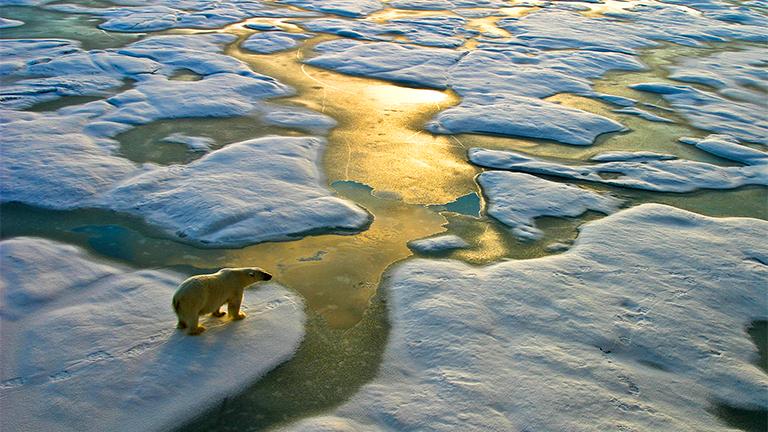
In the MIT humanities course, CMS.375/Reading Climate Through Media, students explore how climate is construed in the contemporary media in order to gain a better understanding of how views of climate change are shaped and received in the public sphere.
They study the pathways that take us from climate science to media content, from big data to the particulars of the human experience — and, they learn how to craft effective climate stories and messages themselves.
Taught by James Paradis, the Robert M. Metcalfe Professor of Writing and Comparative Media Studies, and Brandon Leshchinskiy, the aeronautics and astronautics and technology and policy graduate student, the class centers around critiquing media ranging from documentary films to presidential speeches to nature poems, and on helping students develop communication skills they can use to drive home their messages about climate issues.
The human factor
“It’s critical for the science and technology to be there, but the real climate problem is at the human level," Paradis says. Human beliefs, behaviors, ideas about how to live are all fundamental drivers of climate issues. “That’s where the political dimensions and human stories around climate change come into play.”
The goal of the class is twofold, Paradis explains. First, it’s designed to augment the many climate-focused science and engineering courses at MIT by digging into the social and cultural implications of global warming and by providing a more personal framework for thinking about these issues.
Empowering students
Paradis says that the course is also meant to offer a practical outlet for the eco-anxiety many within the MIT community feel as the climate continues to warm.
“I want our students to have the power to use media to express something about how they feel,” Paradis says. “We're opening up a space for students to express their own ideas about global warming.”
In CMS.375, that expression takes a number of forms. In addition to comparing and critiquing climate texts across a broad spectrum of media formats, students write their own op-eds and articles, create environmental comics, and produce YouTube videos on climate topics. Those projects are supplemented by in-class communication workshops — tools future scientists, engineers, and policymakers can use to accurately and effectively capture the nuances of their work and make their voices heard.
Solving the economic, political, cultural dimensions of climate change
The course is part of a broader, sustained effort within MIT's School of Humanities, Arts, and Social Sciences (MIT SHASS) to bring the Institute's humanistic research and perspectives to bear on the climate crisis. Highlights include: analysis of economic, political, and cultural issues that inform climate policy; educating leading science communicators; clarifying ethical questions of climate strategies; and guiding scientists and technologists in presenting promising ideas to policymakers.
The Institute’s humanistic faculty also teach every MIT undergraduate, empowering each generation of climate problem-solvers with an understanding of the human world — engaging them in subjects ranging from environmental history, law, and energy economics, to international relations, electoral politics, and the ethics of technology to the power of the arts and imaginative literature to help us envision a livable future.
Combining advanced sci/tech with an understanding of human systems
"Climate change is a complex, multidimensional problem whose roots are deeply embedded in the human world — in the political, economic, technological, and cultural realities that are the focus of MIT’s humanistic research," says Melissa Nobles, Kenan Sahin Dean of MIT SHASS. “That’s why combining advanced scientific and technical knowledge with an in-depth understanding of human systems has long been MIT’s approach to making progress on climate issues — and on all the major challenges of our time.”
The messengers
For Paradis, instilling knowledge and empowering students is a major goal of the "Reading Climate Through Media" class. He observes that solving the climate crisis will come down to how humans choose to behave and what information they choose to hear. "Saving humanity will ultimately be up to the messengers," he reflects. “It’s not going to happen unless we send out people who can engage at the human level.”
Learn more
About CMS.375
Brandon Leshchinskiy '20
MIT SHASS Research: Planetary Health
MIT School of Humanities, Arts, and Social Sciences






